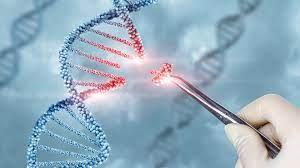
Motor Delay, Low Muscle Tone Signs For Genetic Testing In Kids
The researchers from University of California-Los Angeles (UCLA) Health Sciences aimed to research which factors in this subset of children indicated the need of a genetic test.
“With genetic testing, a diagnostic result can have benefits on medical care, but we don't have established clinical guidelines on the early neuro-developmental signs that classify who gets genetic testing or not”, said Dr Julian Martinez, medical geneticist at UCLA Health.
Knowing the early neurodevelopment symptoms that signal for a genetic diagnosis can benefit both a patient's family and doctor.
A patient's family can advocate to see a geneticist, and a geneticist provides testing that can potentially give a positive genetic diagnosis, which can help with monitoring the onset of other medical concerns or provide an opportunity to start a treatment for the specific genetic condition, if one is available.
The study, published in Genetics in Medicine, reviewed medical charts from 316 patients seen at the UCLA Care And Research In NeuroGenetics (CARING) Clinic from 2014-2019.
The patients were categorised based on their genetic testing results, then the researchers documented clinical factors that differentiated patients with and without a genetic diagnosis.
The researchers found that, overall, patients with a genetic diagnosis were more likely to be female and receive early intervention services for a history of motor delay, low muscle tone, and/or congenital heart disease.
About 75 per cent of patients with motor delay had a genetic diagnosis, and in patients without motor delay, low muscle tone and age of walking were other indicators for a genetic diagnosis.
It is helpful to know that a delay in motor skills yields a very high likelihood of a genetic diagnosis, said authors.
An early genetic diagnosis can lead to managing or anticipating a medical co-occurrence such as congenital heart disease, a psychiatric illness, or information on a higher likelihood of experiencing seizures.

Legal Disclaimer:
MENAFN provides the
information “as is” without warranty of any kind. We do not accept
any responsibility or liability for the accuracy, content, images,
videos, licenses, completeness, legality, or reliability of the information
contained in this article. If you have any complaints or copyright
issues related to this article, kindly contact the provider above.


















Comments
No comment